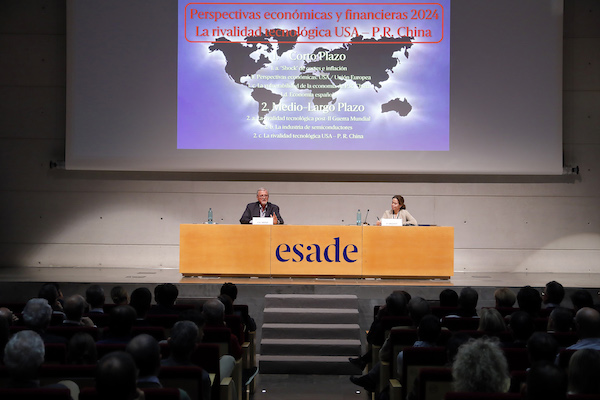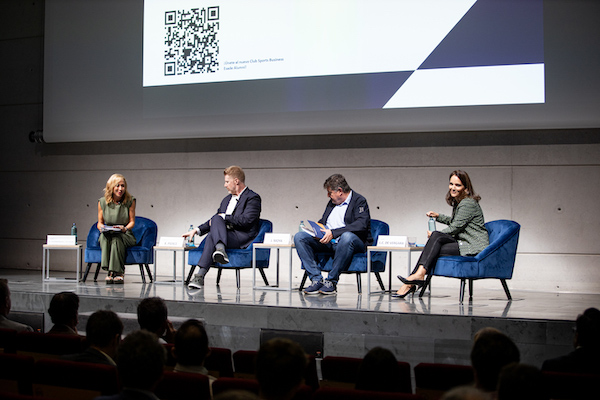On 16th November, Prof. F. Xavier Mena led a Refresher Programme session entitled “2023 Economic and Financial Outlook – Inflation, Taxes and Interest Rates: Gloom or Doom?”, in which he unpacked the major challenges that await us in the coming year.
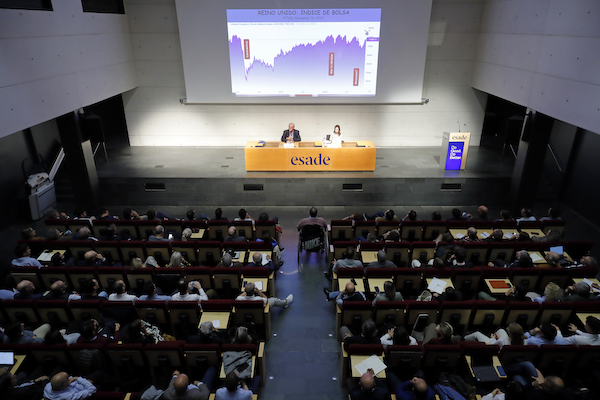
On 16th November, Esade hosted an eagerly awaited Refresher Programme session entitled “2023 Economic and Financial Outlook – Inflation, Taxes and Interest Rates: Gloom or Doom?”, led by F. Xavier Mena, Professor of Economics at Esade–Ramon Llull University and in the Department of Economics, Finance and Accounting at Esade.
Prof. Mena analysed the Spanish and global economic outlook, which presents severe imbalances. The rigidity of supply chains has been aggravated by the energy crisis in Europe. The necessary interventions by monetary and fiscal authorities are expected to lead to high inflation, larger tax burdens, high levels of debt and rising interest rates. “In 2023, the Russian economy is going to have very negative results,” declared Prof. Mena. “There are two other economies that are also going to suffer a lot: Germany and China. Meanwhile, the big winner in this situation will be the United States.”
Geopolitics and global value chains
“The pandemic seems to be contained, but we are now dealing with the consequences of the shutdowns,” said Prof. Mena. “Vaccines have allowed us to socialise again, but COVID-19 still has important implications. And as if that weren’t enough, Putin went and invaded Ukraine. But in my view, the most important thing that is happening is deglobalisation. Are we looking at a process of reshoring economic activities? Companies are starting to think about it.”
This is certainly the case in the semiconductor industry, which is poised to undergo a major reorganisation. The semiconductor crisis – which, in a nutshell, translates into a shortage of microchips – has shaken many sectors of the economy. However, as Prof. Mena explained: “Creating a domestic semiconductor industry requires a lot of basic science, research and design, followed by manufacturing. Moreover, all of the big manufacturers are in Taiwan and South Korea, which creates economies of scale and barriers to entry. If Europe wants to have a secure supply of microchips at affordable prices, we will have to integrate and control the entire value chain.”
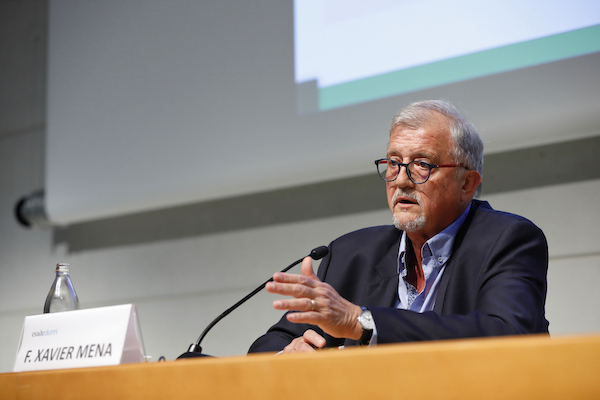
United States and Europe
According to Prof. Mena, the United States occupies the winning strategic position in the current global situation. The possibility of a recession exists in the United States, but it is not as likely as it is in Europe. “Not only is the American economy at full employment, but the Federal Reserve made enormous liquidity available to the government to face the costs of the coronavirus. However, in the face of real inflation – like what we are currently seeing – it has started to withdraw the stimulus measures and is normalising interest rates to contain inflation, which in the United States is demand-driven.”
Another major difference with regard to Europe is that the United States has slashed its dependence on oil imports and is self-sufficient in gas.
Europe is lagging behind because our inflation is driven by demand and, more importantly, by costs. In this scenario, raising interest rates is not the best recipe. Moreover, Europe has experienced a huge gas-price shock that has also affected the price of electricity. “Europe is more likely to fall into a recession because it is being hit hard by the war in Ukraine,” warned Prof. Mena. “Many countries depend on Russia for imports of raw materials and energy. We have returned to fossil-fuel energy sources and all possible alternatives are being explored. For a while, however, the situation will be on standby.”
The United States occupies the winning strategic position in the current global situation. The possibility of a recession exists in the United States, but it is not as likely as it is in Europe.
Although the ECB has started to normalise interest rates, it is not cutting liquidity in order to prevent risk premiums from soaring in the Mediterranean countries. “We are in a complicated situation because we are going to come out of this with a huge pile of debt and public deficits,” predicted Prof. Mena. “Although for now there is a temporary suspension of the European fiscal rules, as well as an increase in structural funds, a fiscal consolidation plan will have to come at some point.”
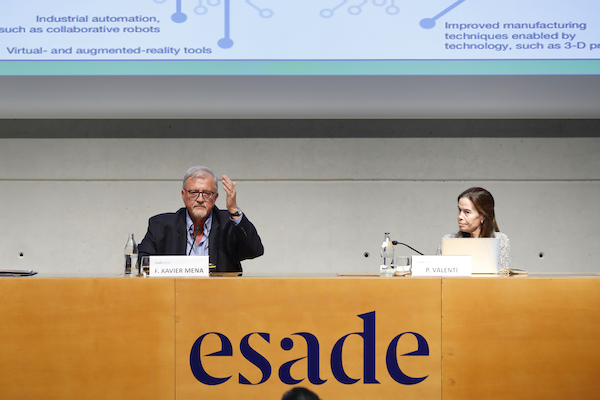
Spain
Spain is the only European economy that has not returned to its pre-COVID level. Forecasts call for growth of more than 1% next year. A significant level of inflation (5% or 6%) will continue to be present during the coming year. “Although tourism has saved us this year, the savings accumulated during lockdown have all been spent,” explained Prof. Mena. Therefore, interest rates and inflation will impact vulnerable households, highly leveraged companies and SMEs hurt by COVID-19 and high energy prices.
Although Spain is dependent on either Russia or Ukraine for energy supplies, many industries are also feeling the pain. In particular, the Prof. Mena pointed to the automobile and real estate sectors as being particularly sensitive to the current situation. On top of all this, the pension system is under review, public debt is high and political instability is the order of the day. “In 2023, we will have to shift gears,” concluded Prof. Mena. “Business and household management requires a preventive change in order to avoid ending up in a dead end.”





